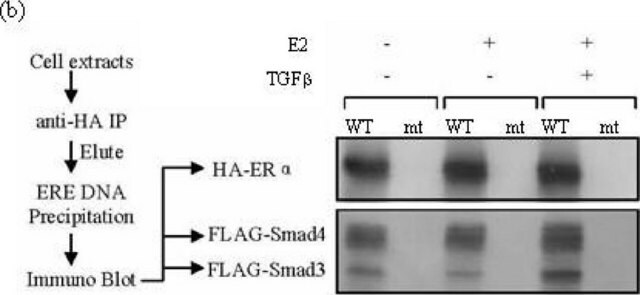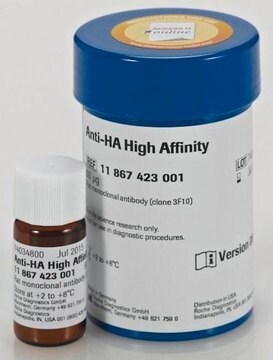H9037
Anticorpo monoclonale Anti-HA
~1 mg/mL, clone HA-7, purified from hybridoma cell culture
Sinonimo/i:
Anti-HA, Anti-emoagglutinina dell’influenza
About This Item
Prodotti consigliati
Origine biologica
mouse
Coniugato
TRITC conjugate
Forma dell’anticorpo
purified from hybridoma cell culture
Tipo di anticorpo
primary antibodies
Clone
HA-7, monoclonal
Forma fisica
buffered aqueous solution
Condizioni di stoccaggio
protect from light
Concentrazione
~1 mg/mL
tecniche
direct immunofluorescence: 10-15 mg/mL using mammalian cells expressing HA-tagged fusion proteins
Isotipo
IgG1
Condizioni di spedizione
dry ice
Temperatura di conservazione
−20°C
Cerchi prodotti simili? Visita Guida al confronto tra prodotti
Descrizione generale
Specificità
Immunogeno
Applicazioni
Immunofluorescence (1 paper)
Stato fisico
Non trovi il prodotto giusto?
Prova il nostro Motore di ricerca dei prodotti.
Codice della classe di stoccaggio
10 - Combustible liquids
Classe di pericolosità dell'acqua (WGK)
WGK 2
Punto d’infiammabilità (°F)
Not applicable
Punto d’infiammabilità (°C)
Not applicable
Certificati d'analisi (COA)
Cerca il Certificati d'analisi (COA) digitando il numero di lotto/batch corrispondente. I numeri di lotto o di batch sono stampati sull'etichetta dei prodotti dopo la parola ‘Lotto’ o ‘Batch’.
Possiedi già questo prodotto?
I documenti relativi ai prodotti acquistati recentemente sono disponibili nell’Archivio dei documenti.
I clienti hanno visto anche
Il team dei nostri ricercatori vanta grande esperienza in tutte le aree della ricerca quali Life Science, scienza dei materiali, sintesi chimica, cromatografia, discipline analitiche, ecc..
Contatta l'Assistenza Tecnica.








